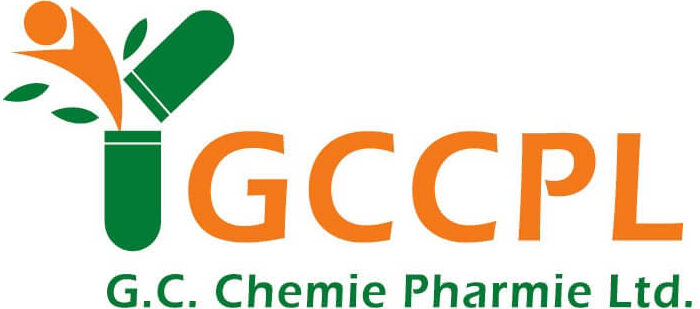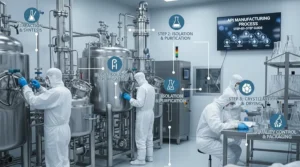In today’s interconnected world, the pharmaceutical industry is more reliant than ever on strong, resilient supply chains. At the heart of this ecosystem lie Active Pharmaceutical Ingredients (APIs), the essential components that give medicines their therapeutic power. Over the years, Indian API manufacturers have emerged as critical players, anchoring the global API supply chain with their cost-effective, high-quality production capabilities.
Let’s explore how API manufacturers in India have become indispensable to global pharmaceutical operations and why companies like GCCPL Pharmaceuticals are playing a pivotal role in strengthening healthcare delivery worldwide.
What are APIs, and Why are They Crucial?
Understanding APIs
Active Pharmaceutical Ingredients (APIs) are the biologically active components of drugs. While excipients in formulations help with drug delivery and absorption, APIs are what actually treat, cure, or prevent diseases.
API vs Bulk Drug
In common parlance, bulk drug refers to raw API before it is formulated into finished dosage forms like tablets or capsules. They form the backbone of the pharmaceutical raw materials ecosystem.
Importance in Pharma
APIs are fundamental to every medicine, from common antibiotics to complex oncology drugs. Without a stable and efficient API supply chain, the production of essential medicines would grind to a halt.
India’s Position in the Global API Market
India is the world’s third-largest producer of pharmaceuticals by volume, and API manufacturers in India account for more than 20% of the global API supply.
Key Stats and Global Reach
- Over 1,500 API manufacturing plants in India, many of which are WHO-GMP and US FDA certified.
- Supplies APIs to more than 200 countries, including regulated markets like the US, EU, and Japan.
- Major bulk drug manufacturers in India are concentrated in states like Gujarat, Maharashtra, Andhra Pradesh, and Telangana.
India’s strategic investments in infrastructure, technical expertise, and regulatory compliance have positioned it as a leader in the global API supply chain.
Why Indian API Manufacturers Are Preferred
1. Cost Efficiency: India’s manufacturing costs are significantly lower than those in the US or Europe, making it an attractive API sourcing hub.
2. Regulatory Compliance: Most API manufacturers in India operate under strict quality norms and hold international certifications like US FDA, EU GMP, and WHO-GMP.
3. Skilled Workforce: India produces thousands of pharma graduates and chemists each year, fueling the industry with qualified professionals.
4. Integrated Manufacturing: Many Indian players like GCCPL are pharma manufacturing companies in India with end-to-end capabilities—from intermediates to finished dosage forms.
5. Supply Chain Resilience: Indian API firms have proven their resilience during global crises like COVID-19, maintaining uninterrupted supplies even amid border closures and raw material disruptions.
Impact of Indian APIs on Global Health Systems
Indian APIs are vital to the production of medicines that serve billions of people across continents.
1. Ensuring Affordability
Affordable APIs from India enable pharmaceutical companies to produce low-cost generic drugs, increasing access to healthcare in low- and middle-income countries.
2. Supporting Public Health Programs
Indian APIs are used in essential global health programs like:
- HIV/AIDS treatment (ARVs)
- Malaria prevention
- Tuberculosis control
3. Reducing Dependency on Single Sources
Diversification of API sourcing from India helps global pharma firms reduce dependency on any one geography, especially amid geopolitical tensions.
Challenges in the API Supply Chain
While India’s contribution is significant, the API supply chain in India faces certain challenges:
1. Dependence on Chinese Raw Materials: A large share of raw materials (Key Starting Materials or KSMs) is still imported from China, creating supply risks.
2. Environmental Regulations: Stricter pollution norms, though essential, increase production costs and require investment in greener technologies.
3. Infrastructure Bottlenecks: Power shortages, logistics delays, and inadequate port infrastructure can sometimes impact delivery timelines.
4. Regulatory Variability: Different international markets require varying documentation and standards, which adds complexity for exporters.
Despite these hurdles, Indian API manufacturers continue to adapt and invest in innovation, compliance, and sustainability.
GCCPL’s Contribution to the Global API Ecosystem
As one of the trusted API manufacturers in India, GCCPL Pharmaceuticals has carved a niche in the global API and pharmaceutical raw materials space.
1. WHO-GMP Certified Facilities: GCCPL operates state-of-the-art manufacturing plants that comply with stringent global regulatory norms.
2. Export-Focused API Manufacturing: With a strong presence in global markets, GCCPL supplies APIs to pharmaceutical companies in Asia, Africa, Europe, and Latin America.
3. Custom Development Services: GCCPL also offers custom synthesis and contract API manufacturing, meeting specific requirements across therapeutic segments.
4. End-to-End Integration: From intermediaries to final APIs, GCCPL controls every stage of production to ensure consistency, purity, and reliability.
The Future of API Manufacturing in India
1. Atmanirbhar Bharat & PLI Scheme: The Indian government’s Production Linked Incentive (PLI) scheme supports local API manufacturing, reducing reliance on imports and boosting global competitiveness.
2. Green Chemistry & Sustainability: Indian companies are investing in eco-friendly production methods, aligning with global ESG (Environmental, Social, Governance) goals.
3. Digital Transformation: Smart manufacturing, AI-based process optimization, and blockchain for supply chain traceability are reshaping the API supply chain in India.
4. Global Partnerships: More Indian firms are entering strategic collaborations with multinational pharma companies for co-development and technology transfer.
The next decade is set to witness the rise of India as the global hub for bulk drug manufacturing and API exports.
Conclusion
From affordability and innovation to quality and resilience, Indian API manufacturers have transformed the landscape of the global API supply chain. Their role is not just transactional but strategic, enabling pharmaceutical access, affordability, and innovation at scale.
Companies like GCCPL Pharmaceuticals exemplify the strengths of API manufacturers in India by delivering globally compliant, cost-effective, and scalable solutions across continents. With supportive policies, investment in innovation, and a growing talent pool, India is poised to lead the next wave of pharmaceutical manufacturing.
FAQs
1. What is the current role of India in the global API supply chain?
India supplies over 20% of the world’s APIs and is a key source of pharmaceutical raw materials for global medicine production.
2. Why do global pharma companies source APIs from India?
Because of India’s cost-effective manufacturing, regulatory compliance, skilled workforce, and proven reliability in global supply chains.
3. How are Indian API manufacturers maintaining quality standards?
By operating under WHO-GMP, US FDA, and EU GMP certifications, and investing in modern quality control systems.
4. What certifications are essential for global API export?
Certifications like WHO-GMP, US FDA, EU GMP, ISO, and regional regulatory approvals are essential for global API supply.
5. How does GCCPL contribute to global pharma supply chains?
GCCPL supplies WHO-GMP compliant APIs worldwide, offers custom manufacturing, and supports end-to-end pharmaceutical production.





